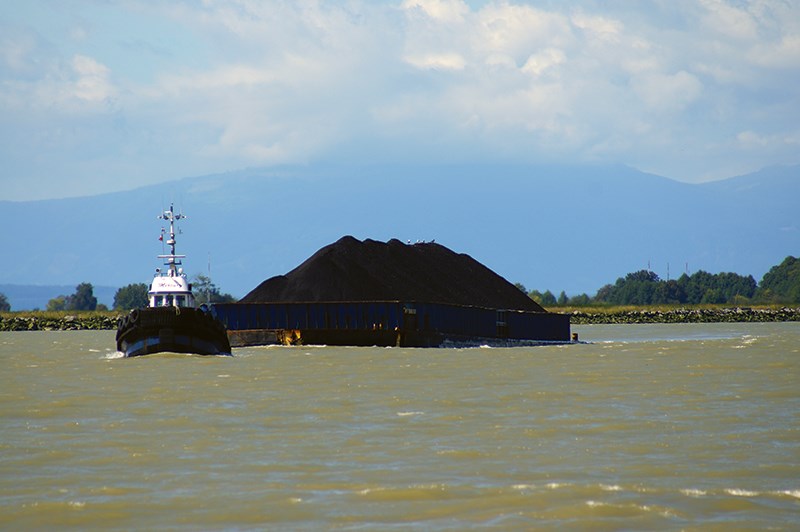At best, it's a relationship as sticky and rocky as a creosote-coated, barnacle-covered dock piling.
On the one hand the City of Richmond depends on Port Metro Vancouver to help drive the city's economy. On the other hand, the quasi-federal agency is looking to scoop up farmland, also vital for the economy, not to mention health and food security of the community.
But it's those latter concerns that seem to be driving port-related discussions within Richmond's bureaucracy, of late.
In a report to Richmond's planning committee, city staff is now calling on other port municipalities to form a coalition to ask Ottawa to establish clear port policies on consultation, environmental management and dispute resolutions.
That's because how PMV is allowed to act is a concern to the city, according to Amarjeet Rattan, Richmond's director of intergovernmental relations.
"The deck is really stacked against municipalities. On the one hand they're run like a private business. On the other hand, when it's convenient, they fall behind federal legislation for protection; so it's difficult to challenge (PMV) from a municipal perspective," he said.
At issue is Port Metro Vancouver's long-term land use plan, released in November, in which it has labelled nearly 100 hectares of agricultural land in Richmond for potential development.
Joe Erceg, Richmond's general manager of planning and development, voiced grave concerns about how PMV is presently operating.
"Consultation has become a formality. It's token, it's after the fact, there's less of a partnership," said Erceg.
"If you connect the dots, it's a reasonable assumption the agricultural land will be lost down the road," he added.
But, the port generates $16 million in revenue for the city and its associated activities account for 11,000 jobs in the city, according to Erceg.
More jobs may be generated through controversial natural gas, coal and jet fuel terminals being proposed on the Fraser River.
Erceg said when PMV was formed in 2008, there was a "culture change" as communication and decision-making became increasingly one-sided.
In 2013 the federal government nixed the Fraser River Estuary Management Program. FREMP managed inter-governmental, environmental management reviews. Those responsibilities have since been passed onto the port, entirely.
The City of Richmond wants PMV to acknowledge in its plan that no farmland will be developed. But PMV has refused, instead labelling such land "special study areas."
"Staff regard this PMV approach as a 'pending' threat to the future of Richmond agricultural land and consider it unacceptable," wrote Erceg.
Also, Erceg said city staff has effectively met a roadblock with the BC Ministry of Agriculture, which has stated it and municipalities have no legal authority over the port to enforce the Agricultural Land Reserve (provincial regulation that prevents farmland from being developed).
Coun. Harold Steves said legal authority needs to be proven in court first.
"It has not been tested in court. It should probably be accepted in court before we give that impression," said Steves.
A recent prime example of the port's unwillingness to listen to others is how inland port options, favoured by Delta and Richmond, are being ignored, said Steves.
Inland ports allow eastbound containers to be shipped from Roberts Bank in Delta to the Interior via rail. This would reduce truck traffic and free up industrial in Metro Vancouver.
Last week Canaan Group announced a planned 320-acre terminal in Ashcroft.
Steves said he wants PMV to work with such groups.
PMV spokesperson John Parker-Jervis said the port is in fact in favour of such an option.
“Any project that would increase capacity, we would be happy to support. We don’t oppose the Ashcroft terminal in any way,” said Parker-Jervis.
But he noted moving containers via rail must be feasible for the supply chain (truck and rail companies).
Parker-Jervis said 30 per cent of containers moving out of Roberts Bank terminal are put on trucks. The rest go on trains.
And, even with the use of inland ports, he noted it doesn’t change the need to increase Roberts Bank capacity (The Roberts Bank Terminal II expansion application is in progress).
VAPOR back in court against VAFFC and B.C. government
VAPOR, a Richmond-based grassroots group opposed to a proposed Fraser River jet fuel facility, will be back in court Feb. 10 to challenge the provincial government’s public consultation process on the project.
The judicial review was first heard in November but Honourable Madam Justice Dillon needed more time to hear both sides.
VAPOR claims the environmental certificate was handed out to an airlines consortium (VAFFC) without proper public consultation, as required by the Environmental Assessment Act.
VAPOR chair Otto Langer says in one instance the public had seven days to review 1,500 “technical materials.”



